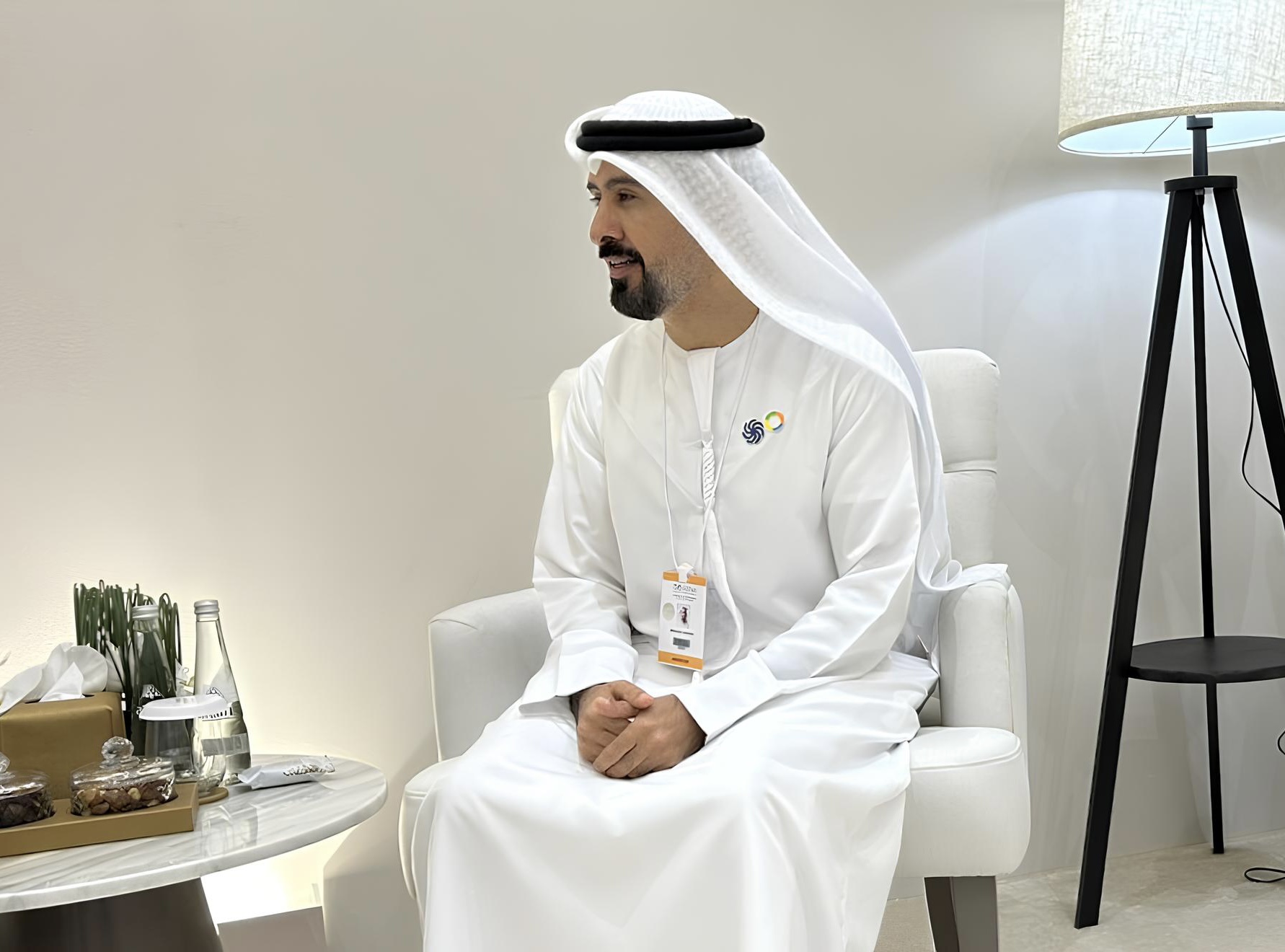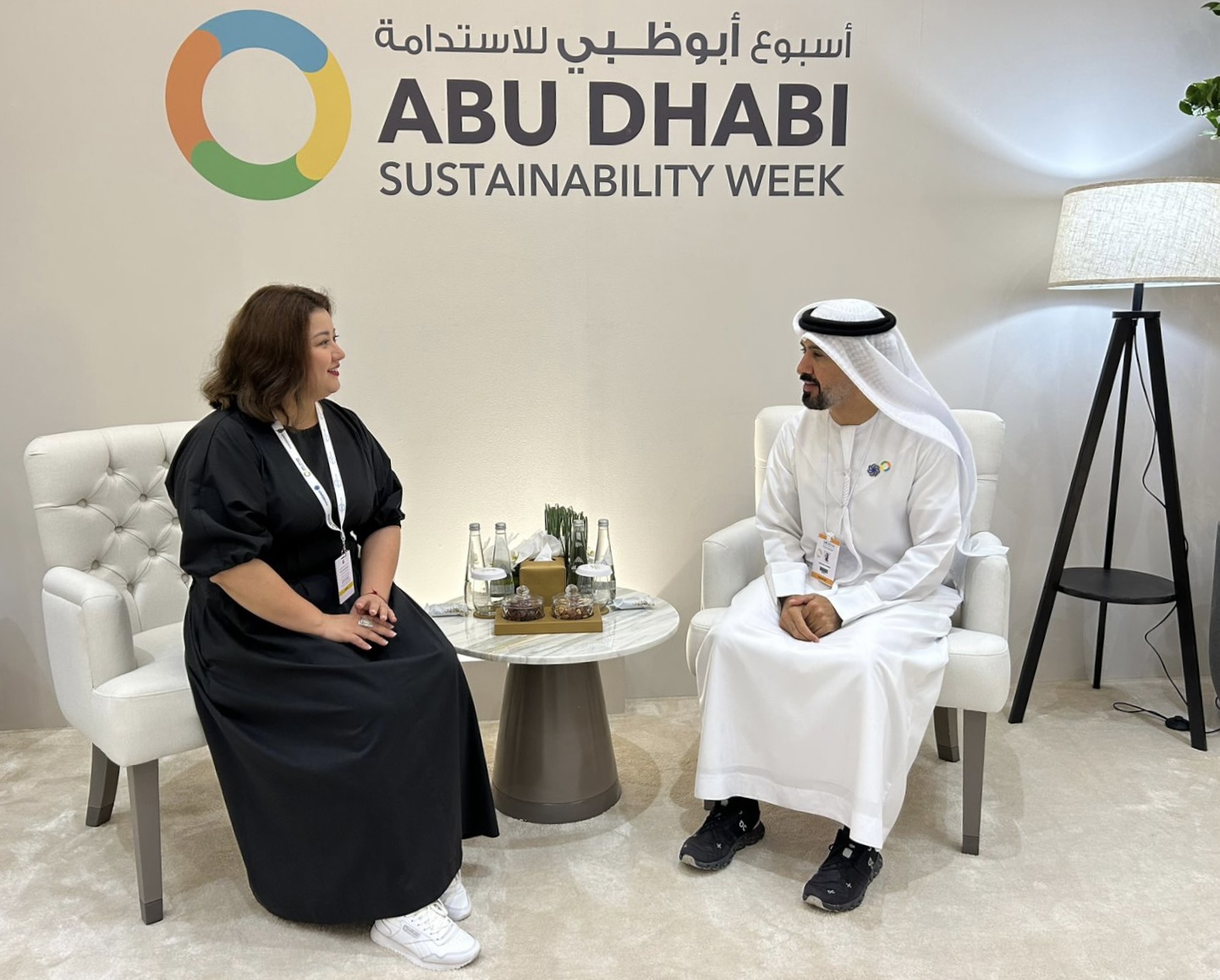ABU DHABI — Last November, during the COP29 conference in Baku, Masdar, a leading renewable energy company based in the United Arab Emirates (UAE), signed an agreement with Kazakhstan to develop a wind power plant in the Zhambyl Region. In an interview with The Astana Times, Abdulaziz Alobaidli, Chief Operating Officer of Masdar, shared insights about this landmark project and the company’s progress in Central Asia.

Abdulaziz Alobaidli. Photo credit; The Astana Times
“At COP29, we signed an agreement to develop a one-gigawatt wind farm in Kazakhstan. We believe the success stories we’ve had in Uzbekistan and Azerbaijan can be replicated in Kazakhstan. We are eager to work with our partners and the government of Kazakhstan to advance their renewable energy ambitions,” said Alobaidli.
Discussing the Zhambyl wind project, Alobaidli emphasized the extensive groundwork required for such developments.
“Wind projects take longer to develop compared to solar because they require at least 12 months of data collection to ensure bankability. We’ve installed wind masts to measure wind speed, direction, and seasonality over the year. This data, combined with historical satellite records, will inform the design and feasibility of the plant,” he explained.
Explaining why the project prioritizes wind energy over solar, Alobaidli highlighted that this decision was made at the government’s request but emphasized that, given Kazakhstan’s substantial renewable energy potential, it does not preclude the development of solar projects in the future.
“Kazakhstan has significant potential for both wind and solar energy. However, based on our discussions with the government and our assessment of the region, Zhambyl proved to be one of the windiest areas in the country, making wind energy the more viable option for this project. We’re technology-agnostic at Masdar. Our priority is to provide solutions that deliver the best results for the government in terms of capacity and competitive tariffs. While wind offers higher capacity factors in Kazakhstan, this doesn’t rule out future solar projects. The country’s extreme temperatures, ranging from -40°C in winter to +40°C in summer, make it an excellent candidate for diverse renewable energy technologies,” he said.
Central Asia’s renewable energy potential
He noted that establishing renewable energy projects requires collaboration with host governments to create the right regulatory frameworks and policies. However, Alobaidli praised the adaptability of Central Asian nations in embracing renewable energy.

Abdulaziz Alobaidli, Chief Operating Officer of Masdar spoke to The Astana Times correspondent Aida Haidar. Photo credit: The Astana Times.
“For example, in just five years, from 2019 to 2024, Uzbekistan has implemented numerous renewable projects. They have designed a regulatory framework tailored to local needs while aligning with international standards. This demonstrates their seriousness and commitment to renewable energy,” he said.
Masdar continuously explores new markets but remains focused on its core strategy of partnering with countries that demonstrate significant growth potential and commitment to renewable energy.
“Our strategy prioritizes countries with clear policies, strong talent capacities, and alignment with their nationally determined contributions (NDCs). We’ve seen great potential in emerging markets like Indonesia and Uzbekistan, where we were among the first investors in renewable energy,” explained Alobaidli.
He highlighted Masdar’s pioneering role in Uzbekistan, where the company’s initial 100-megawatt project in 2019 has grown into a portfolio exceeding two gigawatts.
“The groundwork we laid with the Uzbek government has attracted more developers and investors, creating a robust ecosystem for renewable energy projects,” he said.
Commenting on the progress in Central Asia, Alobaidli expressed optimism.
“Countries like Kazakhstan and Uzbekistan are progressing remarkably well, driven by their willingness to adopt global best practices. Their commitment is evident in the rapid development of regulatory frameworks and the implementation of renewable projects,” he said.
Explaining why countries like the UAE, Saudi Arabia, and Oman are leading in renewable energy compared to others, Alobaidli attributed it to the proactive approaches of their governments.
“They handle much of the pre-development work, creating transparent auction systems that attract developers like Masdar. In Europe, the development cycle takes longer due to the need for land acquisition and grid connections, but clear regulations like feed-in tariffs make it easier to build a business case. In emerging markets, however, frameworks are still evolving. That’s where companies like Masdar step in to support governments in establishing the right regulations to enable large-scale projects,” he explained.
Masdar’s global achievements
Founded in 2006, Masdar has positioned itself as a global leader in advancing clean energy and driving the transition to a sustainable future. By the end of 2024, Masdar’s operational, under-construction, and advanced pipeline capacity soared from 20GW in 2022 to an impressive 51GW.
The company’s strategic expansion was marked by landmark deals in Spain, Greece, and the United States, which played a pivotal role in doubling its portfolio capacity. In 2024 alone, Masdar deployed nearly $8 billion in equity and secured over $4.5 billion in project financing across nine countries, solidifying its status as a key player in the renewable energy sector.
“We’ve developed projects in over 40 countries across six continents, with a current portfolio capacity exceeding 31 gigawatts. Our goal is to reach 100 gigawatts by 2030, a target aligned with the COP28 commitment to triple renewable energy capacity globally by that year,” said Alobaidli.
Masdar’s achievements span diverse technologies and markets. In Indonesia, the company developed a floating solar project to address land scarcity. In the UK, it played a pivotal role in the Hywind Project, the world’s first commercial offshore floating wind farm, designed for deep-sea deployment—unlike most offshore wind projects, which rely on fixed-bottom turbines in shallow waters.
“When we started in 2007, assembling 10 megawatts took a year. Today, technological advancements allow us to achieve that in a day, reflecting significant innovation in project development and operations,” he remarked.
Alobaidli underscored the economic and technological benefits of renewable energy projects.
“These projects create direct and indirect jobs, advance technology, and provide innovative solutions to local challenges. For instance, we’ve introduced AI, digital solutions, and robotics to enhance operations and maintenance, ensuring sustainable and efficient energy production,” he said.
